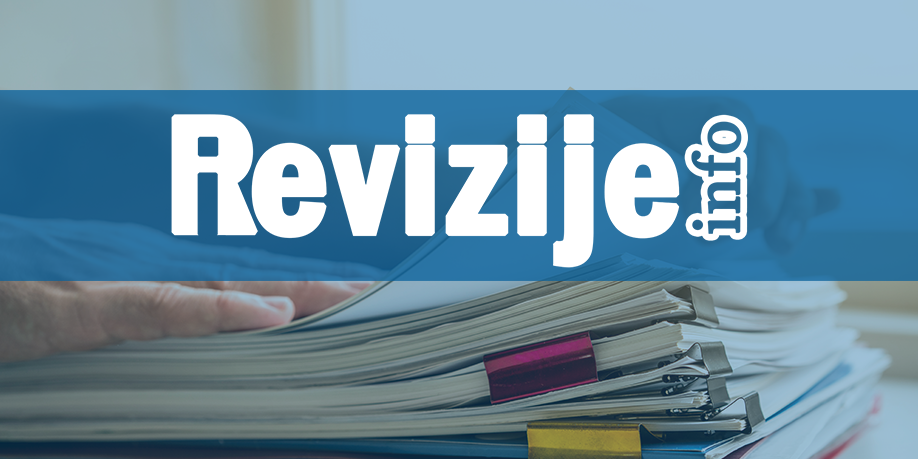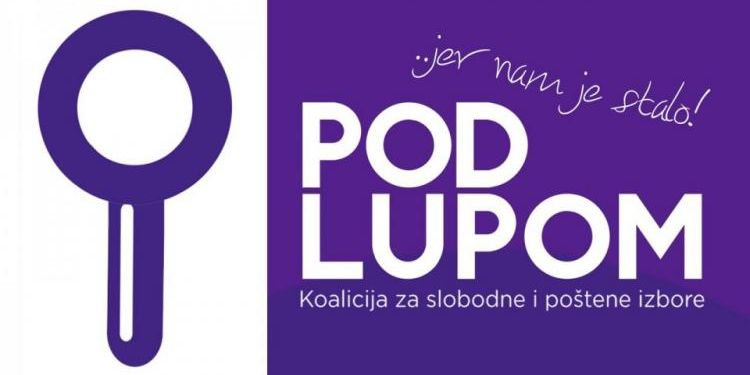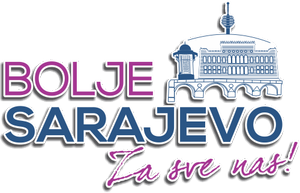
Season's greetings!!! CCI would like to send you our warm wishes for this Holiday Season and the New Year.

The Agreement on Cooperation between the Council of Ministers and NGOs in BiH has been signed.
In late November, the Council of Ministers of BiH adopted the Agreement by which the commitment to building a prosperous and open society in Bosnia and Herzegovina was practically confirmed.
By adopting the Agreement, the activities on creation of a positive environment for development of civil society in Bosnia and Herzegovina and improvement of institutional cooperation mechanisms are continued. This Agreement seeks to create the necessary political framework for strengthening the participatory democracy in Bosnia and Herzegovina, which corresponds to the requirements of the European Union and the needs of Bosnia and Herzegovina for transparent creation and implementation of public policies within the competence of the Council of Ministers of Bosnia and Herzegovina.
Four public hearings with NGOs in Sarajevo, Mostar, Banja Luka and Bijeljina organized with the support of the Center for Promotion of Civil Society, online consultation with the interested public through the website www.ekonsultacije.gov.ba , as well as consultations with the institutions of Bosnia and Herzegovina preceded the adoption of this Agreement, for the purpose of creating a quality document that would establish cooperation of the Council of Ministers of Bosnia and Herzegovina and non-governmental organizations in Bosnia and Herzegovina.
The campaign for the adoption of this Agreement was conducted under the Civil Society Sustainability Project, which is supported by USAID.

The work of the State, entities and cantonal authorities during nine months of 2017 is highlighted in CCI’s reports on monitoring the performance of the parliaments and governments in the country.
As part of the project CSSP – Civil Society Sustainability Program, supported by USAID, CCI carries out monitoring of the work of cantonal, entities' and state parliaments and governments.
In its regular quarterly reports on the findings of monitoring the performance of legislative and executive authorities in BiH, CCI continuously pointed out at both positive and negative elements in the work of the institutions. Our work continued to attracted great attention of the media which pass on the key messages contained in CCI's reports.
The most serious problem at the level of BiH is dysfunctionality of the authorities which, during the observed period, was caused by the problems within the ruling coalition. This has resulted in very few laws that were adopted. In the first 9 months of 2017, at the level of BIH PA (i.e. in both Chambers) only 4 laws were adopted, which is the worst result in the field of legislative activities in the past three mandates. Having said that, all 4 laws are only the amendments to the existing legislation. Therefore, not even a single new law has been adopted.
The situation at the Federal level is not much better either. The ruling Coalition has been extremely unstable which had an impact on the work of the Parliament. Disagreements were obvious in both Chambers of the Parliament. Such a situation persisted almost all the time, only the actors and the specific ways of manifestation of the conflict differed. The last session in the observed nine-month period, was held in July, while almost 3 months had passed before the next session.
At the level of the Republika Srpska, the observed nine-month period was ended by something has been the most radical form of the opposition’s protest so far - (failed) attempt at blocking the work of the National Assembly, as a response to ignoring the request to discuss, in the NA, the report of the Republic of Srpska Public Sector Auditing. This report had earlier stirred both the whole political scene and the public in the Republic of Srpska, causing a very sharp reaction of the authorities, and leading to the resignation of the supreme auditor and his deputy under a serious and unacceptable political pressure.
Summary reports in the English language are available for download here:

Partnership between CCI and the Government of Sarajevo Canton was made official by signing the Protocol on Cooperation.
The protocol on behalf of the Government of SC was signed by the prime minister Elmedin Konaković, on behalf of the Ministry of Justice and Administration of CS by the minister Mario Nenadić, and on behalf of CCI by programme manager Adis Arapović. The minister of justice and administration Nenadić pointed out that by signing the Protocol, the cooperation that is based on transparency and broad participation were made official.
After the session of the Sarajevo Canton Assembly of 31 July 2017 resulted in adoption of the amendments to SC Constitution and consequently, the constitutional reforms, the next step in accomplishing the project goals would be inclusive implementation of constitutional amendments in practice, by advocating a few fundamental laws such as the Law on Local Self-Governance, the Law on Distribution of Revenues and the Law on Public Utility Activity. In order to define the cooperation between the Government of SC, the Ministry of Justice and Administration of SC and the Centres for Civic Initiatives, the Protocol on Cooperation was signed on 17 October 2017. The protocol defines the modalities of cooperation and common goals shared by the Centres for Civic Initiatives and the Government of CS.
The public meeting “Local Self-Governance – Implementation of Constitutional Reforms in Canton Sarajevo” was held on 11 December 2017 in the organisation of the Ministry of Justice and Administration of CS and CCI. The meeting was attended by the prime minister of CS Elmedin Konaković, the minister of justice and administration of CS Mario Nenadić, the director for cooperation at the Embassy of Switzerland Barbara Dätwyler Scheuer, representatives of other Ministries in the Government of CS, the representatives of the City of Sarajevo, all city municipalities, The Association of Municipalities and Cities of FBiH, OSCE, the Delegation of EU, OHR and other domestic and international governmental and non-governmental organisations and institutions, The focus of this public meeting was on agreeing on the principles of the preparation of a pre-draft Law on Local Self-Governance of Canton Sarajevo, which will define precise distribution of competences among the municipal, city and cantonal authorities’ levels, and ensure a better quality of public services. An intention of the Ministry of Justice and Administration was highlighted, i.e. to ensure, at this early legislative phase, participation of all key stakeholders, from cantonal, city to municipal institutions, of expert and academic public, and international and civil society organisations. This should guarantee the development of a quality legislative-legal framework, strengthening local self-governances and improving the quality of services for citizens. A conclusion from the public meeting was that the already formed working group would prepare, for the Government, within 60 days, a pre-draft of the Law on Local Self-Governance. The Law on Distribution of Revenues should also be discussed along with the Law on Local Self-Governance. CCI continues its advocacy activities to make the process of implementation of constitutional reforms inclusive, transparent and in the interest of citizens and local self-governances.
The Project “Inclusive Constitutional Reforms for Good Governance” which is implemented by CCI, with the support of the Government of Switzerland, aims at removing the constitutional grey areas as well as the conflict of responsibilities among nine Sarajevo municipalities, the City of Sarajevo and Canton Sarajevo (CS). Aided by information-advocacy campaign “A Better Sarajevo”, the project will contribute to making the reforms inclusive, enabling wide participation of citizens and to making sure that the public interest, quality of services and citizens’ satisfaction are the top priority.

Proposal of the Law on Amendments to BiH Election Law has been prepared by the „Pod lupom“ Coalition.
The proposal was presented in November, with Senad Šepić, Salko Sokolović and Sadik Ahmetović as authorised proponents. The proposal was adopted in the first reading at 54th session of the House of Representatives of BiH Parliamentary Assembly. The Conclusion of the Constitutional-Legal Committee of the House of Representative of BH PA was adopted at the same time as the Proposal; according to the Conclusion, the opinion of the BH CEC should be requested and obtained before the second reading.
These acctivities are conducted within the project BASE - Building Accountabilty and Systems in the Election, supported by EU Delegation to BiH.

An example of cooperation between the governmental and non-governmental sector in the field of improvement of legislation governing appointments and employment in the public sector.
CCI and TI, in partnership with the experts from the public sector and the academic community prepared and gave to the FBiH Government “Regulation on the procedure of recruitment in the civil service in the Federation of Bosnia and Herzegovina”. According to the agreement with FBiH Government, the Regulation should be adopted immediately after adjustment of the text of the Law on Amendments to the Law on Labour in the Parliament of FBiH Federation. This Regulation closely defines the procedure of recruitment in the civil service in FBiH, from the obligation of announcing open competition, defining the criteria for selection of competition committees’ members, through the scoring method and employment of the best candidates. The goal is to create a more efficient, economical and more accountable public administration.
We would like to remind that in the mid-year the Ministry of Justice of BiH Federation formed a mixed Working Group for development of a pre-draft of the Law on Civil Servants in which the CCI representatives participated too. In December 2017, the final text of pre-draft/working material was finalised on the Law on Civil Servants of FBiH and submitted to the Ministry of Justice of FBiH, in order to initiate the official legislative procedure. This Law has a capacity to improve, in a revolutionary manner, the area of human resource management and upgrade, in a system and comprehensive way, the normative framework of civil servants’ relations in FBiH, including all the public service staff.
Since the beginning of the Campaign “Qualified and Not Suitable”, quite harmonised and progressive cantonal laws on civil service have been adopted in Sarajevo, Tuzla and Una-Sana Cantons. Final adoption of quality laws on civil service is also expected to happen soon in Bosnia Podrinje and in the Central Bosnia Cantons.
These activities have been implemented as part of the project “Strengthening the Integrity of the Public Sector: De-politicisation for the Rule of Law” carried out by CCI with the support of the European Union. The project aims at making a contribution to the rule of law and good governance in BiH, advocating professionalism and integrity of public sector, and especially the procedures of appointment and employment in the public sector.

The Report “State of the Nation” provides a precise overview of the effects of reform in BiH in the last two years, that is to say, since adoption of the Reform Agenda by its fields:
public finance, business climate, labour market, social and pension policy, public governance and the rule of law and the influence that everything above has on citizens’ standard of living. The report may be summed up in a few phrases: the implementation of the reforms was halted due to the political crisis, the standard of living stagnates and poverty, corruption and social differences among the population still persist.
In order to make sure that reporting on the implementation of reforms and EU integrations in BiH is as efficient as possible during this period, CCI organised two Journalists’ Forums in Sarajevo, attended by twenty journalists of the leading BH media. The first Forum was held on 05 October, with a goal to present the methodology of monitoring the implementation and effectiveness of the Reform Agenda and EU integrations. The methodology was specially designed to enable easier understanding by the journalists and investigators and facilitate the reporting on reform processes. The second Forum was held on 02 December. Its goal was to acquaint the present journalists with the background of the findings from the report State of the Nation, with some unpublished contents, as well as with key indicators and issues that enable the evaluation of the success or failure of the reforms initiated in BiH.
Since August 2017, with the support of the Embassy of the Kingdom of the Netherlands in BiH, CCI has been implementing the project “Strengthening the accountability of authorities for the implementation of reforms”, the main goal of which is to increase the efficiency of the implementation of the second stage of the Reform Agenda and speed up the EU integrations, as well as the development of CSOs image and legitimacy in their advocating for solving the problems of BH citizens. All the major activities in this project and the advocacy campaign “Job to the People” are available on website www.posaonarodu.ba

A public discussion forum “Transparent, merits-based and responsible recruitment in the public sector” was held at the end of October 2017.
The forum was organised by CCI and TI with a view to support the adoption of the reform laws and regulations governing fair and transparent appointments and recruitments in the public sector, and to present the Second Report on monitoring the appointments and recruitment in BiH.
A survey conducted by CCI in the first half 2017 shows that in 71% of surveyed public institutions, primarily in the health sector, education, public enterprises and out-of-budget funds, a few hundreds of new recruitment instances were recorded, most frequently without an open announcement. Looking at the whole of the public sector in general, the number of newly-employed in 2017 reaches as many as a few thousand. In public institutions and enterprises covered by the survey, in which open competitions exist, in 57% cases it was an “interview” with the candidates that were decisive in recruitment, frequently without clear criteria or procedures. Therefore, deciding comes down to a personal assessment by the committee’s members, so it is not rare that the same answer is graded with maximum points by one member and minimum by another. An additional problem is presented by the way of forming the competition committees. In the bigger part of the public sector, outside the civil service, which comprises about 80% of the employees financed from the budget, most frequently it is the head of the institution in charge of recruitment who decides on the manner of election of the recruitment committee, transparency of the process, competences and independence and of the committee. Therefore, the practice of the open competition becomes pointless. This is stated in the Report on Monitoring, Appointment and Recruitment in the Public Sector in BiH, which has been presented today.
These activities are implemented as part of the project “Strengthening the Integrity of the Public Sector: De-politicisation for the Rule of Law”, implemented by the Centres for Civic Initiatives (CCI) with the support of the European Union, and which aims at contribution to the rule of law and good governance in BiH, advocating professionalism and integrity in the public sector, especially of the appointment and recruitment procedures in the public sector.

Training for peer trainers and the continuation of the activities on “I Elect for the First Time!”
A training for peer trainers was held in Sarajevo from 22 to 24 October 2017, marking an official start of the second cycle of training of the young people who vote for the first time in 2018 General Elections.
From mid-November to mid-December, over 4000 candidates from the whole of BiH were trained by a total of 17 trainers.
This is the part of the acctivities of Coalition 'Pod lupom' supported by EU Delegation to BiH.

The online advocacy platform www.podlupom.org/mail presented by the „Pod lupom“ Coalition enables the citizens to send directly, „with three clicks“,
a recommendation for amendments of BiH Election Law (by email) to the Parliament members at the state level.
Work of Coalition 'Pod lupom' is supported by EU Delegation to BiH within the project BASE - Building Accountability and Systems in Elections.



















